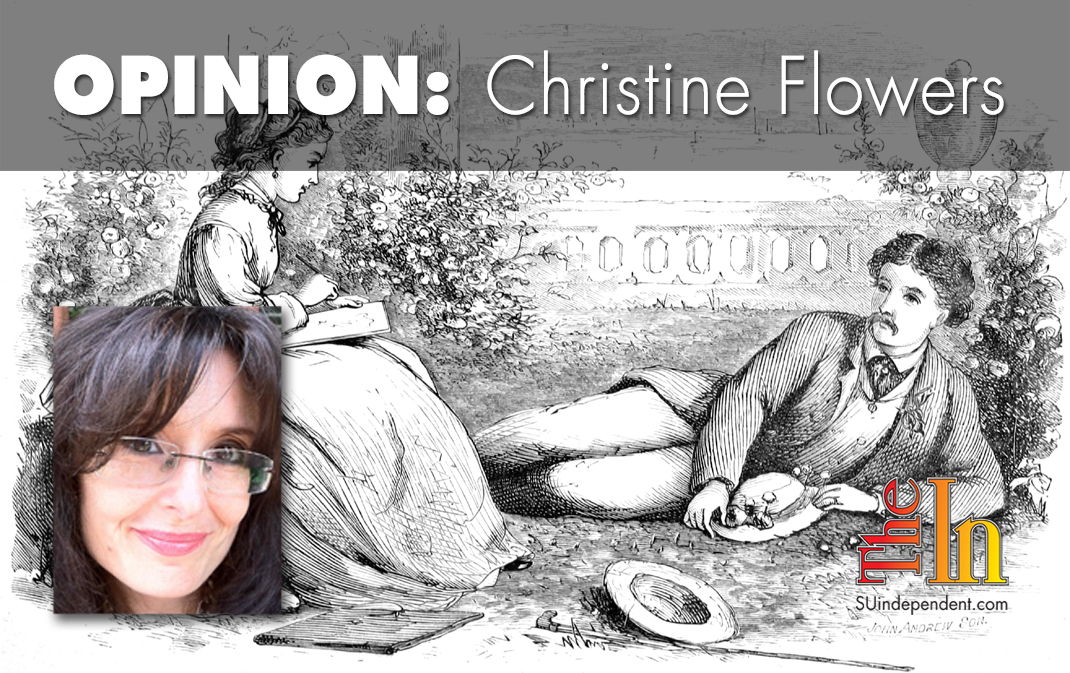
Don’t force your sons to see “Little Women”
On Christmas day, Greta Gerwig’s updated version of the young adult classic “Little Women” opened in theaters to great acclaim, fantastic reviews, and strong box office numbers.
And yet, some women found fault with the fact that not enough men were flocking to see it.
In a piece for the New York Times, writer Kristy Eldredge observed that the film hadn’t garnered a lot of award nominations from the Screen Actors Guild (zero) and the Golden Globes (two) and mentioned that the audiences seemed to be overwhelmingly filled with women. Film producer Amy Pascal agrees, arguing in Vanity Fair that many male awards-season voters are skipping Gerwig’s adaptation because they think it’s not for guys.
Eldredge seemed to blame men for not appreciating female-centric stories and framed it as some sort of character flaw that society needed to address: “If many men haven’t wanted to give it a chance because they don’t think it’s meant for them, we still have a way to go in considering all kinds of narratives about women to be deserving of thoughtful attention.”
It’s not surprising that a story about the relationship between four Civil War-era sisters written over 150 years ago and with absolutely no battlefield scenes is not a favorite with the Xbox set. While there has always been some cross-gender interest in young adult literature like “A Separate Peace” and “Catcher in the Rye, “which have strong male characters, there is a universality of message in those books. In other words, Holden Caulfield’s existential angst and the rough contours of Gene and Phinny’s tragic friendship have resonance beyond their masculinity. You could imagine a female Holden or an equally traumatic betrayal between two young women at an all-girls school.
But “Little Women” is really just a movie about females and their dreams and aspirations and disappointments, and that’s perfectly okay. In fact, it’s sublime. The book and the movies adapted from it are some of the most touching examples of female bonding in literary and cinematic history. As a Bryn Mawr graduate — like Katharine Hepburn — I am partial to the 1933 film, but Gerwig’s adaptation is exceptional and deserving of all the accolades it will earn, despite the naysayers.
But it is a bit ridiculous for women to be complaining that men are not interested in a book and movie called, for lord’s sake, “Little Women.” This preoccupation with “gender parity” has become cult-like.
I know a bunch of boys around the age of 11 or 12 who love dinosaurs and Jedis. They also love Harry Potter, “The Lord of the Rings,” R.L. Stine, and any number of things that girls the same age might also enjoy. These are clearly things that bridge a gender divide because they are not specifically “male” or “female.”
But when I was growing up, there were toys you gave to boys and toys you gave to girls, and it was not considered a hate crime to insist that your daughter not be given a GI Joe doll or that your son put down the Barbie. It was okay to recognize that there were stereotypes for a reason — namely, that boys and girls had different interests.
I don’t share the angst over a presumed lack of interest on the part of men about the destinies of Meg, Jo, Amy, and Beth March.
Ironically, Louisa May Alcott herself wasn’t thrilled with the idea of writing what she called a “girls’ story.” She wrote in her diary: “I plod away, though I don’t enjoy this sort of thing. Never liked girls or knew many, except my sisters; but our queer plays and experiences may prove interesting, though I doubt it.”
If even the writer of this wonderful girls’ story doesn’t expect boys to like it, why in the world should we?
The viewpoints expressed above are those of the author and do not necessarily reflect those of The Independent.
How to submit an article, guest opinion piece, or letter to the editor to The Independent
Do you have something to say? Want your voice to be heard by thousands of readers? Send The Independent your letter to the editor or guest opinion piece. All submissions will be considered for publication by our editorial staff. If your letter or editorial is accepted, it will run on suindependent.com, and we’ll promote it through all of our social media channels. We may even decide to include it in our monthly print edition. Just follow our simple submission guidelines and make your voice heard:
—Submissions should be between 300 and 1,500 words.
—Submissions must be sent to editor@infowest.com as a .doc, .docx, .txt, or .rtf file.
—The subject line of the email containing your submission should read “Letter to the editor.”
—Attach your name to both the email and the document file (we don’t run anonymous letters).
—If you have a photo or image you’d like us to use and it’s in .jpg format, at least 1200 X 754 pixels large, and your intellectual property (you own the copyright), feel free to attach it as well, though we reserve the right to choose a different image.
—If you are on Twitter and would like a shout-out when your piece or letter is published, include that in your correspondence and we’ll give you a mention at the time of publication.



